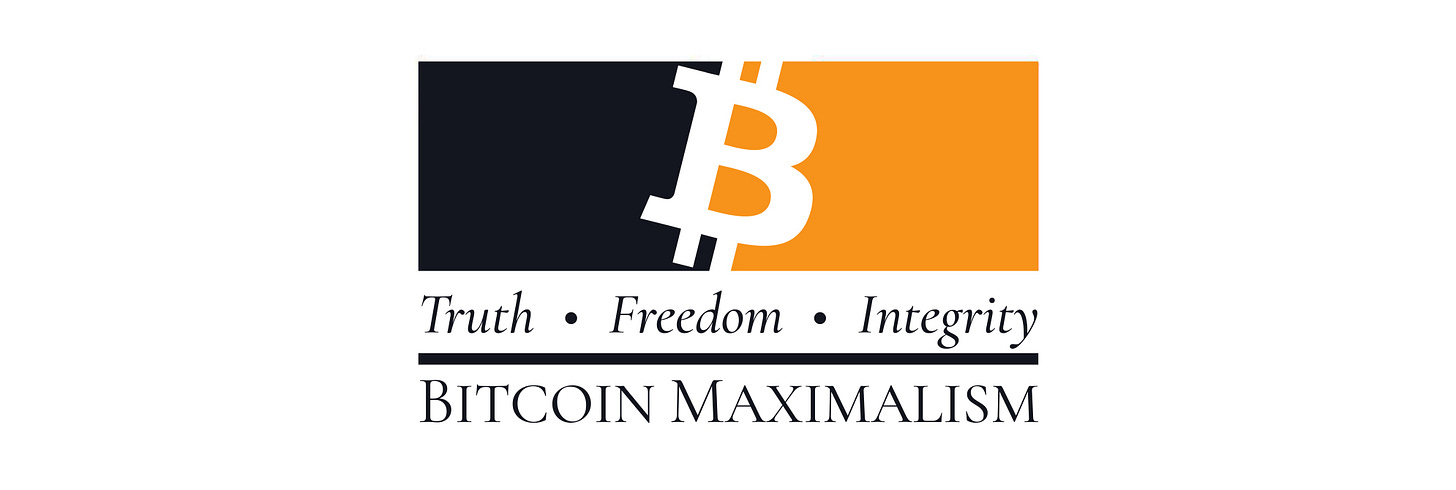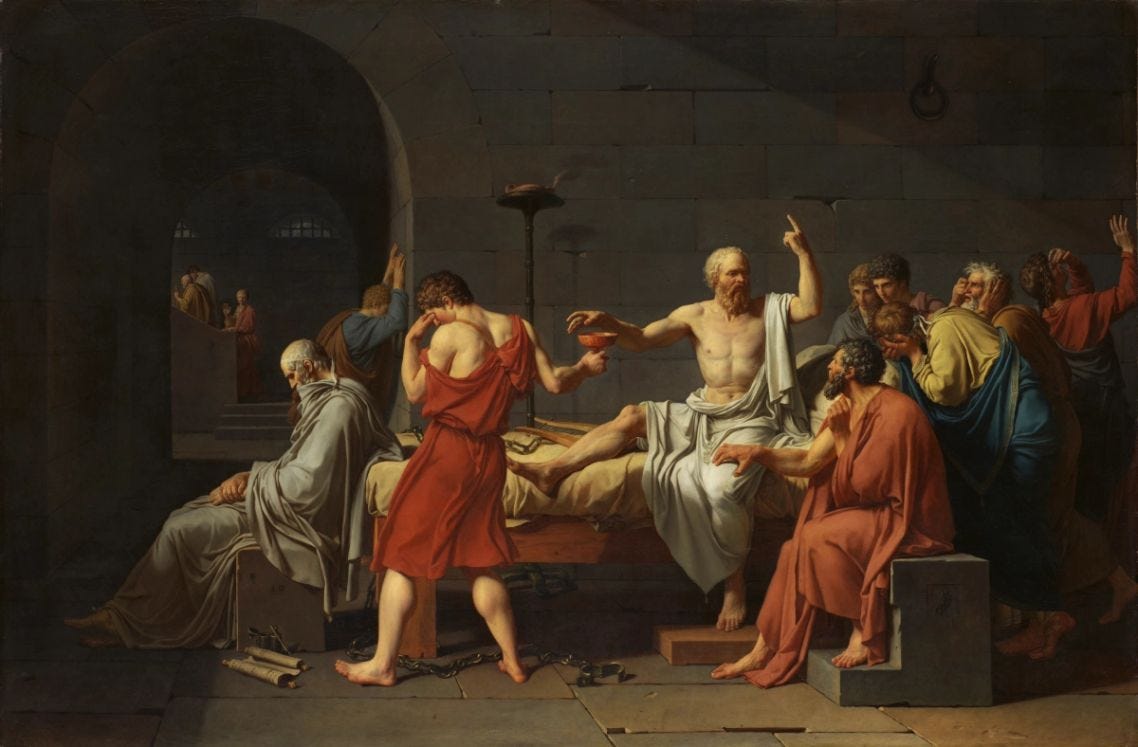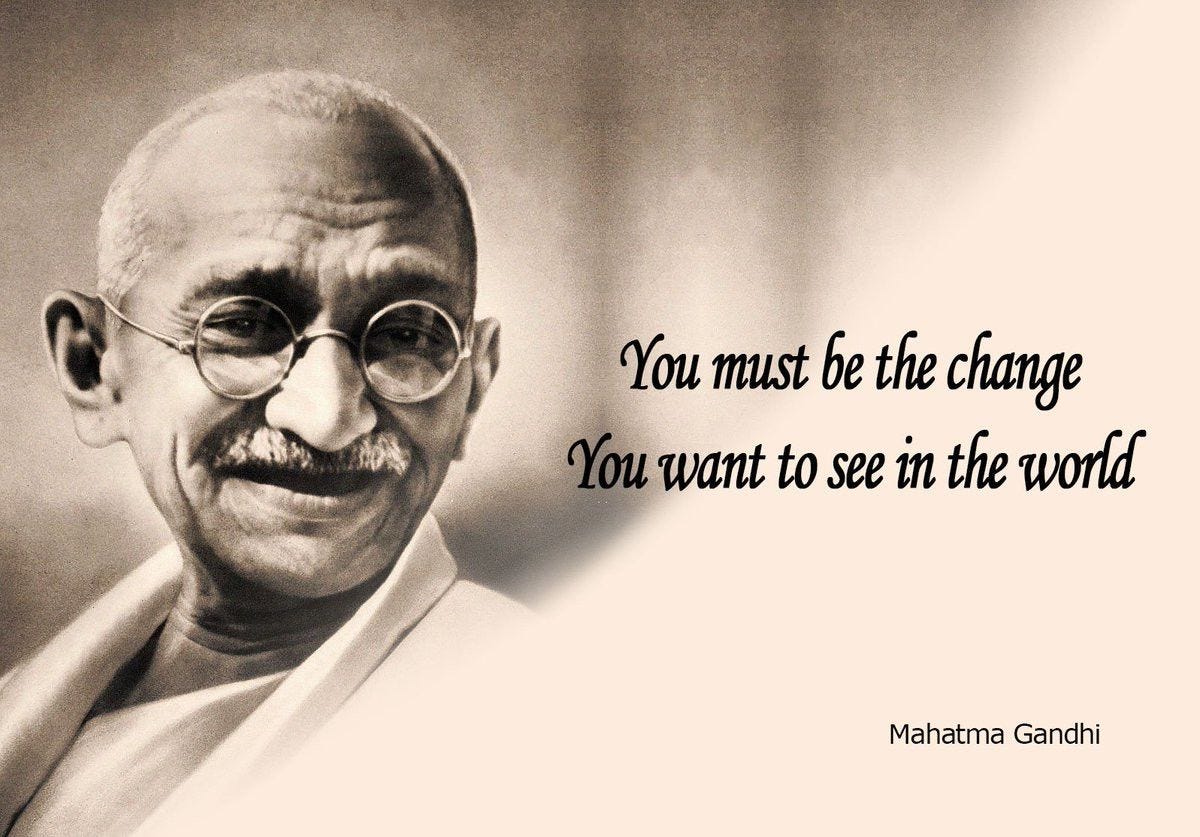Bitcoin culture and integrity.
I often find it curious how bitcoin gradually, but often radically changes many people's fundamental philosophy and way of life to a more natural state, grounded in first principles and a bedrock moral framework. Bitcoiners often talk about Truth, Freedom and Integrity as pillars when describing what bitcoin means to them. Why all of a sudden, in the TikTok generation, are a group of people gravitating towards becoming more virtuous?
In a world that has turned increasingly relativist and nihilistic, where even the moral fabric of society in which we stand on is seemingly dissolving, may understanding the shelling point of incorruptible money, bitcoin, also lead to a rediscovery of the capital of another shelling point of virtue; integrity? A revival of deeper truths that has been clouded by vices and illusions derived from high time preference of fiat culture; consumption, status, denying reality, praising the shallow and fake, credentialism and appeal to authority?
When you first break away from “consumption & status as self-esteem” -- which pairs deviously with high time preference-- there’s a gaping hole in your conception of Self. Virtue fills this, and allows virtuous others to contribute, as opposed to others concurrently experiencing your current mode of consumption.
Ancient integrity.
For a good person, right thoughts, feelings and desires are interdependent and none is more important than the other.
Plato is known to use the psychological unity as the cornerstone of his account of justice in the Republic. Aristotle follows by granting his phronimos unqualified consistency between practical appreciation of right and wrong, and the affects supporting and surrounding action and practical judgement.
Integrity as a shelling point.
Together, they bring together characteristic clusters typical of integrity: integration; wholeness; consistency in belief and between belief and action; unwavering appreciation and pursuit of the good; a commitment to the virtue of not acknowledging contradiction. The picture we have here is that Integrity may not be a virtue as much as it is a prerequisite of virtue or the First Principle that harmonizes the virtues.
Integrity is not morality. It’s the structural foundation to fulfill an entity’s stated purpose. It’s either sufficient or it isn’t. Maybe the shelling point is when the system’s integrity is sufficient for that system to reach its shelling point.
Plato goes beyond philosophy to the personal and political. The psychological unity he expresses is meant to explain the powerful and uncanny character Socrates so strikingly exhibits. Psychological unity is thought to be inextricably linked to social conditions and political institutions. All of these themes were employed by Greek philosophers both in theory and practice.
Aiming at the Good.
Aristotle distinguishes two intellectual virtues: Sophia (philosophical wisdom) and Phronesis (wisdom in action), and describes their relationship to other intellectual virtues—because of its practical character. It suggests good judgment as well as good character and habits. The traditional Latin translation is Prudentia, which is where the English word "prudence" comes from. Modern interpretations such as "mindfulness" have also been proposed.
Phronesis is not only about the ability to decide how to achieve a particular goal, but also the ability to think about and set good goals that are consistent with overall good life goals. Aristotle states that although Sophia is higher and more serious than Phronesis, the supreme pursuit of wisdom and happiness requires both, since Phronesis facilitates Sophia. He also associates Phronesis with political ability.
Gaining phronesis requires experience.
While young people may be experts in geometry and mathematics and similar fields of knowledge [sophoi], we do not believe that young people can have prudence [phronimos]. The reason is that phronesis involves knowledge of certain facts, knowledge from experience, which young people do not possess; for experience is gained by the fruit of years.
Phronesis is concerned with details, about how to act in a particular situation. One can learn the principles of action, but in the real world, applying them in situations we cannot foresee requires world experience. For example, if a person know he should be honest, but in certain situations, he may act in a way that causes distress and offense; knowing how to balance honesty with other considerations and how to balance it in a particular situation requires experience.
The modern incarnation of this lack of experience is illustrated by young people in the modern society who paradoxically feels the most oppressed, but in reality are among the most privileged and entitled people who have ever lived. They think that symbolic virtue signalling, rallying behind tribal instincts and witch hunts is making a positive impact and changing the world for the better. Alas, they are misguided by overly relying on their feelings, and less so on reasoning.
The middle path. An archetype?
There is no word for integrity in ancient Greek - instead uses a concern for unity and consistency expressed in a particular way to convey this phenomenon. Likewise, Classical Sanskrit and Classical Chinese do not have a direct equivalent to our English term integrity. However, one can deal with this phenomenon and find illuminating research on it. It is in this light that the Indian Buddhist articulation of the Middle Path, a path of harmony and progress, and the complete and fundamental transformation of consciousness, can be viewed.
I don’t care about your feelings.
I care about your character.
Integrity might be the most important capital one possess, and should be honed with utmost reverence, as it is vital to leading the path to a virtuous and good life for yourself, benefitting your family and ultimately your community.
“I remember as a young child hearing from a long passed away family member that during the depression ‘sometimes when you have nothing, you only have your word to get you thru...so make sure it’s as valuable as gold.’
Integrity is indeed capital."
—Trigger_Down
Sources
https://integrityproject.org/the-project/i-ancient-integrity/
https://en.wikipedia.org/wiki/Phronesis
Like my work?
Send me some bitcoin over Lightning network:
http://pay.bbw.sv/nakadaimon
Lightning address: nakadaimon@pay.bbw.sv
Download a #bitcoin Lightning capable wallet such as Wallet Of Satoshi, Muun Wallet, Blue Wallet or Breez. Follow the instructions. Top up with Bitcoin, and then, just scan the QR code below to send a donation.
Buy bitcoin with automatic DCA buys in Europe:
Use Ref: NAKADAI and get 0.5% discount in fees when buying BTC.
https://relai.app/ambassadors/nakadai/
Follow me on social media:
Nostr NIP-5: nakadaimon@nostrplebs.com
Nostr nPub: npub1sqaxzwvh5fhgw9q3d7v658ucapvfeds3dcd2587fcwyesn7dnwuq














This is an outstanding piece - enlightening in connecting where modernity has lost its way and how it might again align individual and collective integrity for civilization.
I remember as a young child hearing from a long passed away family member that during the depression “sometimes when you have nothing, you only have your word to get you thru...so make sure it’s as valuable as gold.”
Integrity is indeed capital...